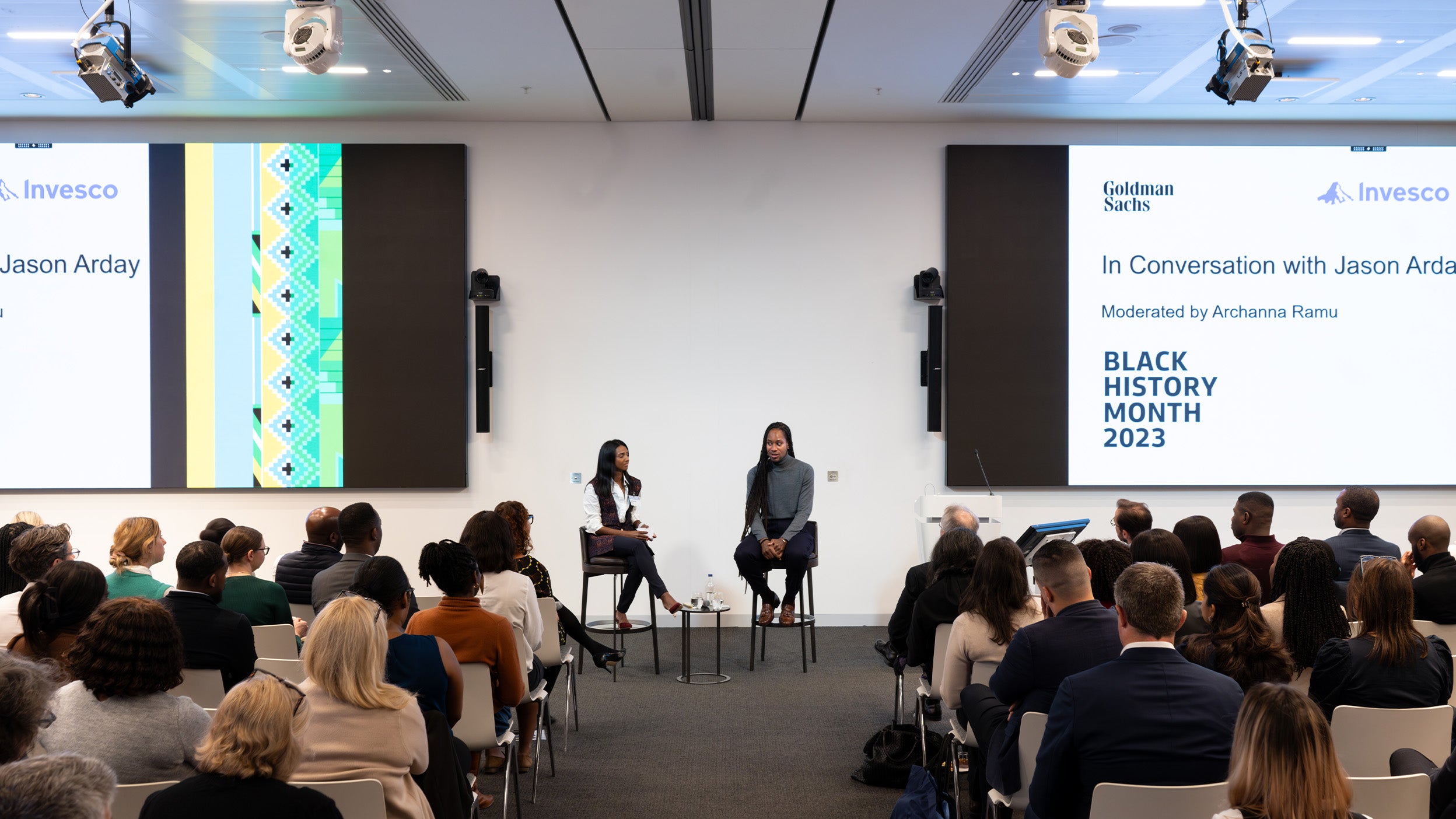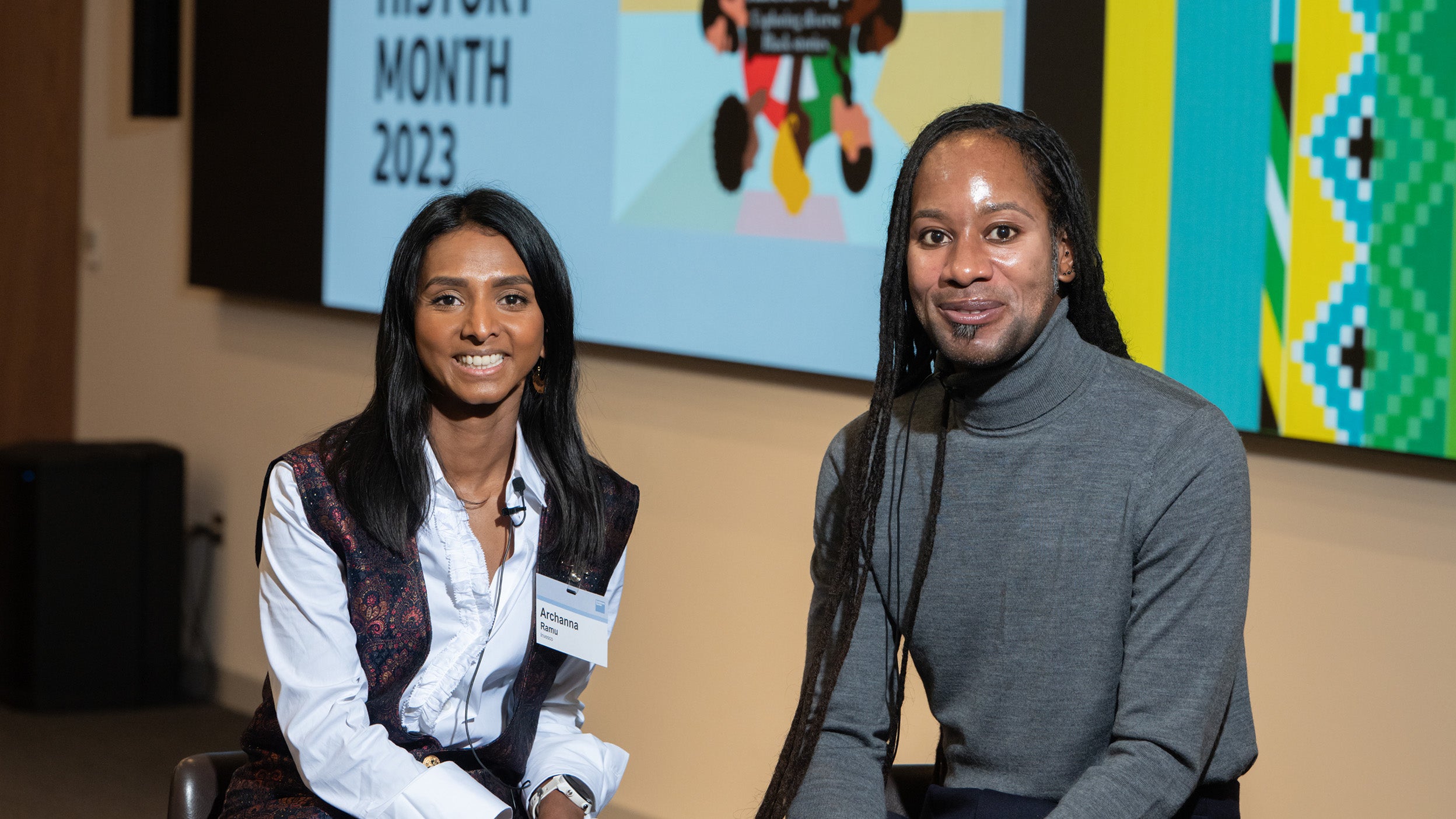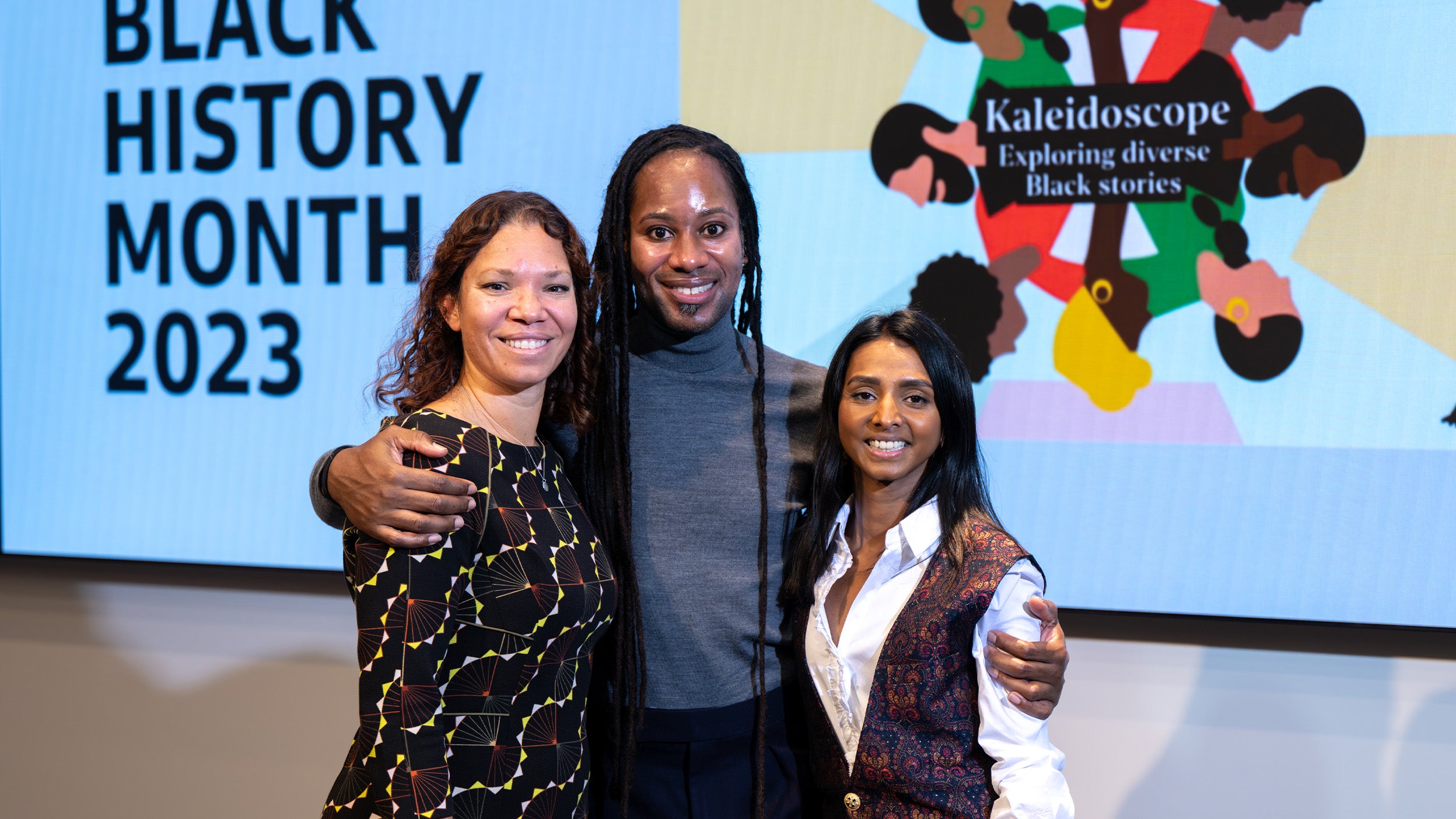
News announcements
Invesco UK Announces Environmental Partnership
Invesco and the Wildfowl & Wetlands Trust have launched a partnership to support conservation and restoration of UK wetlands. Find out more.

On 31 October, Invesco had the privilege of partnering with Goldman Sachs to hear from Professor Jason Arday on the intersectionality of race and neurodiversity. Jason was recently recognised in the 2023 edition of the Disability Power 100 list, coming in fourth. This list recognises the most influential disabled people in the UK.
The event took place at Goldman Sachs’ offices in London, with over 230 colleagues in attendance from Invesco, Goldman and the Black Women in Asset Management Network.
The conversation was hosted by Invesco’s very own Archanna Ramu, EMEA Account Management Director.

Those of you who have come across Jason’s story will probably have heard it chaptered into sections, defined by four key numbers.
Diagnosed with autism and global development delay at the age of three, Jason learned to speak at age 11. He went on to read and write as an adult, before becoming the youngest ever black Professor at the University of Cambridge aged 37. His appointment also made him one of the youngest people ever appointed to a full Professorship at Oxbridge.
These numbers tell a compelling story – Jason is an inspirational man who has overcome adversity to achieve huge success. But, throughout our conversation, what became apparent was that some of his most important moments have taken place in the space between these four milestones.
Throughout our hour-long conversation, Jason told us about the people and experiences that have defined his life so far. He also shared details on the work he has gone on to do, before highlighting the challenges that black, ethnic minority and neurodiverse people still have to navigate on a daily basis.
Two key figures Jason highlighted in his life and story are his mother, Gifty, and the college teacher, Sandro Sandri, who taught him to read and write. When he talks about them, the importance of advocates and allies becomes clear.
Jason’s mother advocated for him with courage and determination when psychologists, speech therapists, colleges and work placement centres said there was nothing they could do to help him. Sometimes her guidance was tough as hard truths, but always delivered with love, care and unwavering support.
For example, when Jason was advised to give up hope of a paid job and instead take on volunteer work aged eighteen, his mother took him by the shoulders and said, “Son, you have to make a life and stand on your own two feet, otherwise life is going to be very difficult for you. You have to find a way Jason”.
He also acknowledges the sacrifices that his mother made to support him, and describes the parents of neurodiverse children as being “the true heroes” of stories like his own. This is characteristic of his humble attitude towards his own success.
Similarly, Jason’s college teacher, Sandro, spent hours with him every day after formal lessons ended. They would work together on phonic exercises every day from 2pm until 11pm. It was life changing support and a friendship that continues to this day.
When Jason shared his ambitions with Sandro – to go to university and ultimately to do a PhD – he laughed. But not with cruelty or condescension. “I think we can take on the world and win”, he said. The story is one of hope, optimism, determination and unwavering friendship.
When you listen to Jason speak, you quickly discover that he is a man of action.
When Jason was a teenager, he set the ambition of raising one million pounds for charity by the time he was forty. He actually went on to achieve this before his thirtieth birthday, and today has raised over five million pounds for charities like Shelter and the Shooting Star Children’s Hospice.
Today, he remains committed to advocating for marginalised groups, including black and ethnic minority women and the homeless. He also does important work raising awareness on the importance of viewing race, neurodiversity and feminism through an intersectional lens.
During our conversation, Jason spoke specifically about microaggressions and the pressure many feel to hide, minimise or mask aspects of their identity. Allies can play an important role here. You have to be able to obstruct the injustice before the moment arrives, moving from the back seat to the front.
While academia is a core part of Jason’s story and his work is crucial to spread awareness of these topics, he encouraged everyone in the audience to take their agency and purpose, and put this into action – specifically advocating for others. This was a key message from the event.
